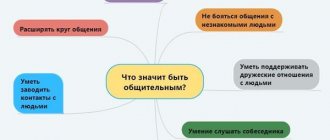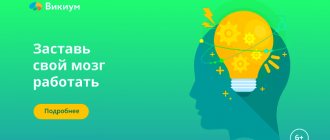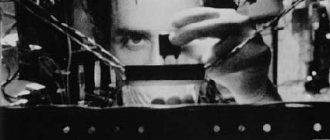- November 5, 2019
- Psychology of thinking
- Alina Pavlova
Today's world is more saturated than ever with distractions. In the frantic pace of life, we rarely have the chance to stop and carefully weigh this or that decision, to make a truly informed choice. How to focus on your own thoughts when there is such an abundance of colors, sounds, tastes around?
However, the problem is not always the environment around us, although its role is really important. Trouble concentrating may be related to other factors. In this article, we will tell you in detail about what affects our ability to concentrate and how to keep our attention on one thing without being distracted by anything else. The methods presented here are perfect for any type of task and will be useful both in work and study, as well as in any form of creativity or hobby.
To begin with, we will tell you about the main factors that may prevent us from focusing on one specific task.
Health status
It's no secret that the quality and duration of night's sleep directly affect our attention. However, not many people know that too much sleep is just as harmful as too little sleep. In both cases, we feel overwhelmed and lethargic, and concentration is out of the question. Each person needs a different number of hours for proper sleep. In general, it should be at least seven hours. Try to monitor your condition, and once you determine what sleep duration is ideal for you personally, stick to it on a regular basis.
Nutrition also plays an important role. You've probably noticed how difficult it is to concentrate when we overeat or, on the contrary, feel hungry. Both have a negative impact on the health of the body, which, in turn, has a detrimental effect on the brain. Not only attention begins to suffer, but also memory. Try to diversify your diet as much as possible, consuming enough protein, fiber, and carbohydrates every day. Don't avoid sweets, but reduce your consumption if possible.
And finally, stress. It exhausts all body systems and disrupts their functioning, which also affects sleep and appetite, creating a vicious circle. Chronic stress can lead to much more serious problems, including mental problems. How to concentrate in this case? It is very important not to put off solving your problems and work through them as they arise. Remember that asking for help is not a sign of weakness. It just means that you are a living person.
Concentration zone in space
Writing for the New York Times, journalist Cleve Thompson wrote about the importance of interruptions in our lives and the price we pay for them. However, he does not rule out the possibility of “finding the perfect compromise.” In the same article, he describes an experiment conducted by cognitive psychologist Mary Czerwinski in collaboration with NASA.
During expensive experiments in space, astronauts must monitor the health of the spacecraft. When something goes wrong, they need warning signs that will get their attention without throwing them off track. Text messages on the screen may go unnoticed; a loud beep, on the contrary, will be too distracting. Mary Czerwinski suggested using a geometric figure, the sides of which would be painted in different colors depending on the type of problem encountered. Her decision is an example of the very “ideal compromise” that Thompson spoke about.
A text message attracts little attention, which means that the astronaut will find himself in the zone of insufficient arousal. The sound signal will trigger a surge of adrenaline, and the astronaut will become overly excited. A geometric figure that changes color will not disturb the relaxed and focused state of the astronaut. Thus, he will be able to respond to the alarm signal in a timely and correct manner.
Multitasking
As amazing as the human brain may seem to us, even it has its limitations. Multitasking is almost as harmful a factor as poor sleep and unsystematic eating. In this regard, our brain is very similar to a computer: it begins to freeze if there are many “programs” or tasks running. In other words, the more we plan to do in one time period, the more difficult it is for us to focus on completing one single, or even the main task. Consequently, its quality will suffer, which will only add to our own uncertainty. How to concentrate if you have a lot to do? We'll talk about this a little later.
Routine, monotony and boredom
No matter how much you love what you do every day, sooner or later you will be overtaken by a feeling of boredom. And the point is not that what was once a favorite activity has ceased to be such, to arouse interest and inspiration. However, when we do the same thing over a period of time, our brain quite naturally goes into energy conservation mode. Consequently, focusing becomes more difficult. This usually happens when we get stuck at one level of complexity in a workflow. Or progress is being made, but not fast enough. We’ll tell you later how to concentrate in this situation.
We found out what prevents us from concentrating on one task. It turns out that it’s not always about the surrounding reality, and it’s often worth thinking about your own lifestyle. However, we should not forget that everything in nature is interconnected. What happens in our bodies and minds can be a direct reflection of the environment in which we live or spend most of our lives. And vice versa.
Finally, we come to the main question of how to focus on one thing without being scattered among other things and concerns. So where to start? How to direct and keep your attention on what is really important and necessary?
How to learn to stay focused on one thing: 12 ways to focus on work
It is extremely important not to be interrupted when you are in the inclusion stage of the workflow. To prevent this, use the methods described below.
Face-to-face consultation
What are the features and advantages of face-to-face consultation?
Find out more
Skype consultation
What are the features and benefits of Skype consultations?
Find out more
Do not be distructed
Constantly switching to other things when you have just started working on a project is the same as driving a car, stopping and accelerating all the time. This takes a lot of energy, and productivity is reduced to a minimum. If multitasking is not your style, ask your loved ones and colleagues not to disturb you for a certain time. Turn off social networks, email and phone. Switch to other types of activity only when you feel that you have entered a phase of decreased performance.
How to learn to concentrate correctly at work: remove all unnecessary things
Things unrelated to the project distract the mind, generating an additional stream of thoughts. If the workplace is cluttered, information noise and chaos arise in your head, which makes it much more difficult to immerse yourself in active work. Try working on a cluttered desk, then leave it completely clean and compare the results.
Work or study on a timer
Promise yourself that until the time allotted for concentrating on one task ends, you will not be distracted. Cut off these time intervals using your alarm clock. This type of organization trains self-discipline. Determine how long your most productive moments last and take this into account when creating your timing. Periodically change the objects of your attention, but only consciously, on a schedule.
For example, knowing that maximum efficiency in your work activity is achieved after 30 minutes, take a ten-minute break every half hour. Then the brain will always be in good shape. And if suddenly after 15 minutes. work, you want to be distracted, remember that, most likely, your mind is trying to deceive you. By overcoming this desire, you will be able to remain at the peak of productivity for some time, and then relax with a clear conscience.
Get up earlier
It is much easier to concentrate on a task in the morning, since the mind has just recovered and is not yet overloaded with information. In addition, sleep itself greatly slows down the flow of thoughts that distract from business, so there will be much less reason to interrupt. This is why many people prefer to wake up at 5-6 o'clock and go to bed early in order to be efficient for most of the day. At the same time, be sure to get enough sleep! Lack of sleep reduces reaction and mental activity, leading to exhaustion and weakening of the body.
Leave the fun for later
Under no circumstances should you start your workday by reading news on social networks, watching TV and other useless activities. Remember that after dessert it is much more difficult to sit down to the main course - it simply does not seem as attractive. Work for so long until you feel tired, and only then switch to relaxation. It is not for nothing that there is a completely working expression: “There is time for work, an hour for fun.”
How to learn to focus on a goal and be focused: Warm up by making a plan
To get your mind in a productive mindset, create a detailed daily routine before you begin a task. If you have one big task to complete, break it down into several parts and allocate a specific time period to each. Imagine how the workflow will go within a couple of minutes. After such a workout, you will feel that it will be much easier to switch on.
Connect logic
The left hemisphere of the brain is responsible for logical thinking, determination and rational activity. It can be triggered by solving math problems, crossword puzzles and games. Activate the right side of your body by moving your arm or leg.
Ask a question
Eliminate moving objects
The subconscious will always pay attention to movement, which is the basic principle of the instinct of self-preservation. The activity is dangerous, so reflexively you will be distracted by them.
- Close the door to your office or room so that no one enters and interferes with your work.
- Turn away from the window so as not to react to passing cars or people passing by.
- Eliminate contact with pets.
If you can't concentrate on anything, control your adrenaline levels
When you are excited, a stream of intrusive thoughts prevents you from concentrating on what you are doing. Just like fatigue, drowsiness does not allow you to fully engage in the work process. To work effectively, you need to maintain an average level of arousal that does not fuel mental activity, but also does not push you to quit.
To reduce anxiety:
- turn on a calm instrumental melody or sounds of nature;
- take a walk;
- reproduce in your head the image of a quiet, beautiful area where you once visited;
- reduce muscle tone, take a relaxed position;
- go slowly;
- slow down your breathing.
To increase adrenaline:
- listen to energetic music;
- do a warm-up, move around;
- change the position of your body so as not to come into contact with the surface as much as possible;
- do work while standing;
- start doing tasks faster;
- breathe more often.
How to correctly and quickly focus on the main thing and work: remove unnecessary sounds
Extraneous conversations slow down brain activity, creating an additional stream of thoughts. Eliminate noise with headphones or earplugs. Better yet, ask those who create uncomfortable conditions for you to be quieter.
Don't eat sweets
Although they say that chocolate stimulates brain activity, confectionery products are sources of fast carbohydrates, are instantly broken down in the stomach and do not provide enough energy. Sweets reduce efficiency and concentration, so often after eating them you may feel sluggish and relaxed. Instead, eat fruits and vegetables as often as possible, which will supply the body with vitamins and fill it with vitality.
Work while standing
The larger the surface area with which the body comes into contact, the less toned the muscles are. So, by leaning our elbows or lying down on the bed, we give the body a signal that we can relax and unwind. It is extremely difficult to concentrate in such a state. If you can't stand all the time while working on a project, sit down when you feel that you have passed the inclusion phase and entered the productivity phase.
Formulate a goal and plan
If you don’t know where you’re going, you’ll never get anywhere. The situation is similar with any task: if you do it without having any specific goal, it is unlikely that anything will come of it. When we work for the sake of work, study for the sake of the very fact of studying, engage in creativity for the sake of creativity itself - this is a deliberately losing option. Indeed, in addition to the fact that we do not achieve tangible progress, on top of everything else, we waste our strength, energy and, of course, time. And they, in turn, are invaluable resources that, when used correctly, help achieve great success.
To focus your attention on the one thing that is most important to you, set yourself a clear and, most importantly, achievable goal. This can be either a short-term goal (up to about five days) or a long-term goal (up to a month or more). Choose the option that suits you personally. It is very useful in such situations to know your personal characteristics. What motivates you more: getting results as soon as possible or doing everything gradually, without rushing?
In addition to setting a goal, create your own individual plan for completing a particular task. This is best done in writing. A goal broken down into stages of its implementation seems more achievable and realistic. This way you will clearly understand what exactly and in what order you need to do to get the desired result. In addition, the plan will prevent you from forgetting anything important, and you will not have to keep everything solely in your head, which will give you additional energy. Focus on what matters most, with a clear goal and a plan to achieve it, and your attention will be much more stable.
Prepare your work area
The environment in which we work, study or engage in creativity sets the pace for the entire work process and directly affects its quality. It is important to adjust the environment so that it is comfortable for you to work in it. After all, we are all very different: some people need everything to be in their place to concentrate, while others are inspired by creative chaos.
True, often a large number of objects in the work area only complicate the process, as a person who has surrounded himself on all sides with stationery, papers and other things that, according to him, cannot do without, often says. Even so, try to free up the work area as much as possible, leaving only the essentials. You can always take everything else out of drawers or shelves. The fact is that our brain perceives a large number of things in the workplace as multitasking, which we talked about. There is simply not enough attention, because it is distributed to every nearby object.
In addition to answering the question of how to focus on one thing, it is important to talk about the benefits of silence. Even if you find it easy to concentrate while working in a noisy environment, your brain still has to process the information you hear. Which, in turn, takes away additional energy from you. Make sure that you are not disturbed by extraneous sounds in your work area, and if this is not possible, take breaks by going to a quieter place. And do not forget to ventilate the work area.
Pioneers in the world of technology
After finishing her career at NASA, Mary Czerwinski worked at Microsoft. She noticed that many employees attach two or three monitors to their computer - for different applications. For example, on one there is a mail window and a browser, on the other, right in front of you, is the main work. These workers admitted that they felt calmer this way and were able to get more done.
A large workspace is really important. Imagine you are cleaning out your closet. The more things you have, the more space you need to sort them. Our minds need space to organize and select what's important in any visual field—in a room, on a printed page, or on a screen. An additional monitor allows you to always keep your work in front of your eyes and return to it immediately after you had to interrupt.
Come up with your own rules and restrictions
When considering how to focus on school, work, or creativity, it's important to be aware of what distracts you. Social networks, instant messengers, offers from colleagues to take a tea break or just chat with them for a minute or two - all this is great, but only during a really necessary break, which you will talk about later. Appreciate your work and respect your own capabilities. For example, schedule a specific time to check social media and stick to it. If possible, purchase a second phone that will be exclusively for work calls and correspondence.
Focus on one thing: eliminating interference
- Work in comfortable conditions. If you have the opportunity to choose your own place of work, make sure that there is not a single distraction around. Make a list of the things that distract you the most and create a workspace where you don't have the option to go on social media, watch YouTube videos, or chat with a friend.
- If it is impossible to eliminate the source of noise or movement that distracts you, you should not waste your energy, nerves and endure until the last minute. You should also not switch to aggressive mode. Just walk away, find a quieter place to organize your workspace, or go for a walk. The second option is to put on headphones and turn on a calm, pleasant melody.
- Turn off the Internet if possible. Close the browser window with intrusive advertising, exit social networks, let only the necessary materials for the project be in front of you.
- Set your priorities wisely. During the day, you are probably faced with a huge number of tasks, each of which requires attention. Do what is of particular importance or urgency first. And only then proceed to issues of lower prioritization.
- Take up meditation. Learn breathing exercises that will help bring your body into a state of focus when overloaded. Look within yourself for sources of energy and inspiration. To do this, you can sign up right now for my women’s course “Personal Energy Metaphysics”, during which you will learn how to use internal resources to their full potential!
Maintain a balance of work and rest
The phrase “I can’t concentrate at work!” This is often said by those who do not know how to competently distribute their activity. But not only the quality of your work, but also your physical and psychological well-being depends on this. Again, everything is very individual here. Observe your condition and determine the approximate time during which you can calmly do your job without feeling tired, uncomfortable, or irritable. Remember one important thing: it is better to take frequent breaks (10-30 minutes) than to work non-stop with only one hour break a day. Your health is much more important. Try to go for a short walk whenever possible, or at least look out the window to saturate your brain with oxygen. It will also be useful to simply walk around the room.
But how can you focus on work if it turns out that there simply isn’t enough time for a full break? Try breathing techniques and meditation. They can be done without leaving the room. This has a positive effect not only on the functioning of the brain, its memory and ability to concentrate, but also on the entire nervous system. Choose the meditation or breathing practices that suit you best. You will feel their benefits in the near future.
Take care of your health
No matter how great things we are capable of, we are only human. Like any living organism, it is extremely important for us to maintain our health. Sleep enough hours, make sure your meals are nutritious and regular, and include at least minimal physical activity (exercise, aerobics) in your life. Try to avoid overwork, as it can have more serious consequences than we used to think. Overwork can lead to emotional burnout, an increased risk of colds, and simply chronic stress. Take care of yourself.
Moreover, we should not forget about the importance of psychological health. Set yourself only realistic, feasible goals and objectives. Maintain an active social life, because communication with family, friends, buddies and good colleagues is very beneficial for our psyche. And of course, try to solve problems that concern you - both work and personal - as soon as they arise. Or in the near future.
Usage examples and quotes for "don't distract"
Lord Jesus could not sleep, And the Lord went for a walk among the stars, Along the heavenly, golden road, Stepping from star to star. The Lord Jesus was escorted by Nicholas, Bishop of Myra, and Thomas the Apostle - only two. God thinks...
Poem Poems of the Deacon - Gorky M., read online.
The proletarian poet does not stop writing about love. His main muse and lover, according to historians, is Lilia Brik, with whose family he was friends for many years. Although there was another woman in Mayakovsky’s life - Tatyana Yakovleva, with...
Mayakovsky Vladimir - poetry
The heat of days not yet past was imagined in the thoughts of a kaffir, the thick fog that had not yet fallen kissed the eyelashes. He dipped the pages of His dreams into it.
“Theme with Variations” - Boris Pasternak
Reward yourself
When it comes to focusing on work, school, or creativity, there is one very important point that should not be overlooked. The reward system really makes a huge difference. The thing is that by positively reinforcing our own achievements, we only increase their number in the future, not to mention the fact that this makes it much easier for us to achieve our goals. What’s important is that you should reward yourself even for what you think are the most insignificant victories.
For example, you can reward yourself for each completed item in the plan that we talked about. It could be something small but pleasant: from basic verbal praise to a small purchase. Therefore, when you achieve the goal itself, the reward should be more tangible. Here you can already treat yourself to some good thing, for example, clothes, a delicious dinner at a restaurant, and even a trip to another city or country. This way your brain remembers that any achievement, even a small one, is followed by something very pleasant for you. In the future, it will be easier for you to concentrate on the tasks at hand and, therefore, easier to complete them.
Don't wait for inspiration - just start
And the last thing you need to know is how to concentrate at work or any other activity. Sometimes we spend much more time just collecting our thoughts. Even if we like the task and are fully motivated to complete it, it happens that we never manage to start it. And we are waiting for the right moment when inspiration overtakes us. We are waiting for Monday, the end of vacation, a good mood or simply sunny weather.
This is one of the most common myths that in order to decide to do something, you need to wait for the right moment. You may wait too long or not wait at all. When all you need to do is start. It can be quite difficult, but it's worth it. Just try it. Just as appetite comes during eating, so interest comes during work, study and creative processes. The main thing is to overpower yourself at the very beginning, and then everything will go like clockwork. We can guarantee this to you.
In this article, we told you how to focus and not be distracted from what is important to you. Now you know what factors influence the ability to concentrate, as well as what helps us concentrate on one task for a long time. The work environment really matters. It is important to be able to carefully create it so that you feel as comfortable as possible. However, remember to put your own health and well-being first. If you've tried everything we've talked about in this article and you're still having trouble staying focused, you might want to seriously consider getting some rest. Sometimes a long and quality vacation is all that is needed to return to the work process collected and active.
Remember that our attention is based on interest. Do what you really enjoy, what inspires you to achieve and makes you move forward, no matter what. If you get tangible returns from your business (not only financial, but also emotional), then you are on the right track. Do what you love and love what you do. This is the key not only to any success, but also to a happy life.
Simplify
Bright minds often adopt the simplest methods. Instead of creating super-complicated self-managed workday planning programs, they keep the most ordinary lists in familiar text editors.
An interesting and simple idea is a device called the Hipster PDA - a set of stapled cards that fit in your pocket, on which you write down everything you're afraid of forgetting.
It looks like technology will only become more complex in the future, but our strategies must remain simple.
How to Deal with Interruptions Set aside a few blocks of time to start important projects when you are sure you won't be interrupted. Keep track of how much time you work and how much you lose during interruptions. Keep a reminder of your current task in front of your eyes so you can return to it right away. Be assertive and confident to reduce unnecessary interruptions.










